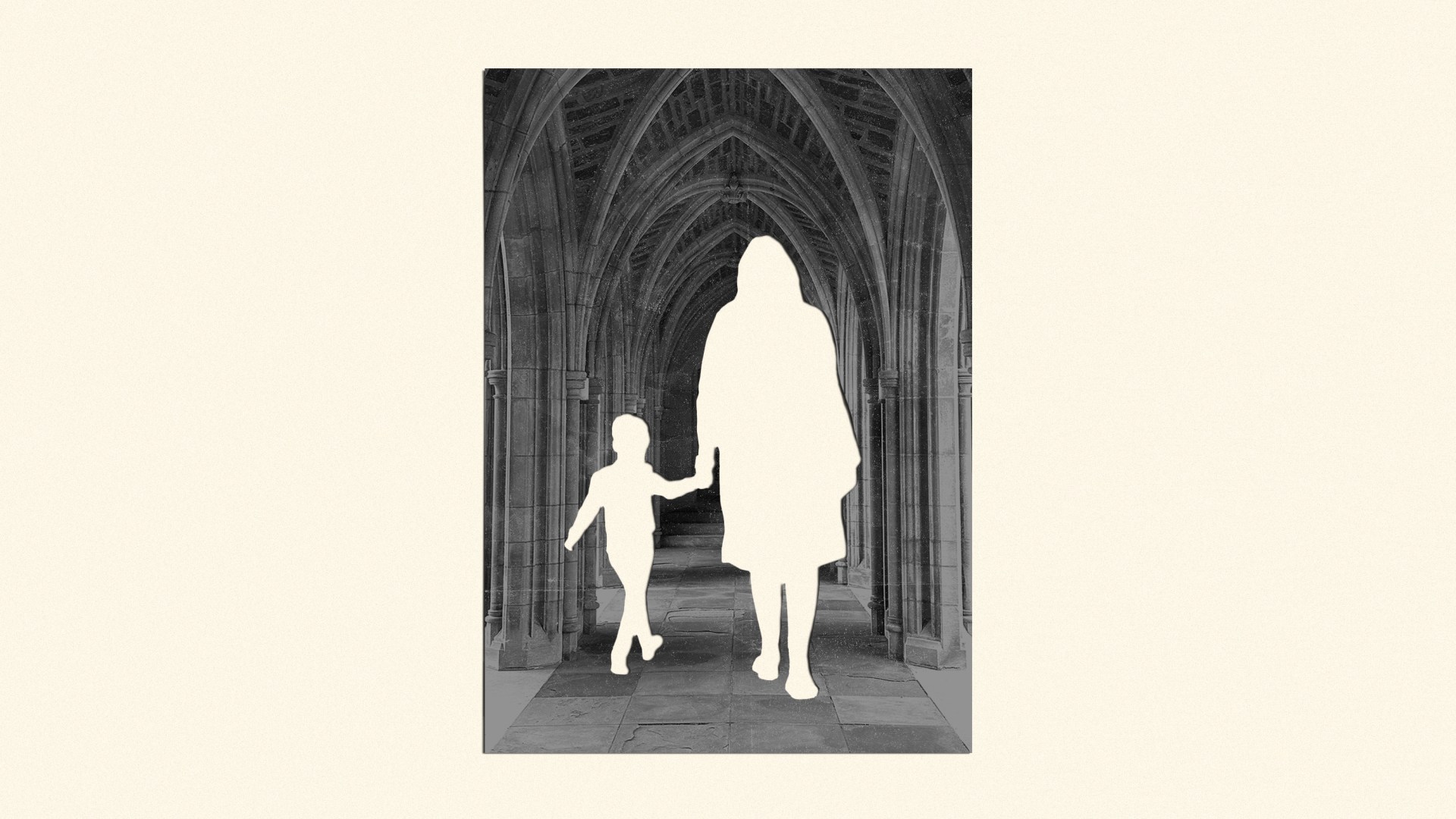Scripture repeatedly calls believers to care for the widow and the orphan. Yet as pews refill post-pandemic, one group remains strikingly absent: single mothers.
Recent Barna research reveals that only one in four single moms attends church weekly, the steepest drop among women in recent years. The finding raises an uncomfortable question: Are churches truly heeding the biblical command to care for the vulnerable in their midst?
When Joie Van Holstyn became a single mom of two boys through foster care and adoption in 2019, her church attendance quickly spiraled.
“It was really hard at first,” she said. “We had pretty rough attendance the first two years—it was so much work to get out of the house. And I just felt out of place as a single mom.”
For women like Van Holstyn, the barriers start with logistics—juggling work hours, transportation, and the chaos of getting kids ready alone. But the emotional weight can be heavier still. Many feel judged, pitied, or simply invisible in congregations that assume families include a husband.
A friend eventually confronted Van Holstyn about her sporadic attendance. Convicted, she committed to going every week, even when her children squirmed through the small rural church’s service.
“I just committed to going, and I hated it at first,” she said. “I didn’t learn anything because my kids were so busy and naughty. But I just kept going, and slowly I realized I enjoyed it more.”
Now six years into single motherhood, Van Holstyn says she’s found her rhythm—but wishes churches would be more proactive about providing childcare rather than waiting for participants to ask.
“I hate when they say, ‘If you need childcare, let us know,’” she said. “That makes me feel like a burden, so I don’t say anything.”
Her persistence makes her something of an exception among single moms, though.
In the US, 23 million kids grow up in single-parent homes, mostly with single moms who don’t attend church. Even well-intentioned congregations, experts say, often miss the mark in reaching them.
“Many of these women have experienced significant trauma,” said Michelle Donnelly, founder of Uncommon Valor, a ministry for relational healing after trauma. “They may resist asking for or receiving help, and that means even if you offer the best programming, they may not want to participate.”
Indeed, the programmatic mindset—offering a special event or class, then assuming participants will assimilate into existing ministries—often leaves women feeling unseen.
“There’s been a rise in one-time events for single moms,” said Jennifer Maggio, founder of the ministry The Life of a Single Mom, which partners with over 2,000 churches nationwide. “But churches assume those mothers are joining other ministries afterward. Most aren’t.”
Maggio knows this firsthand. Once a 19-year-old single mom of two on food stamps, she started her ministry in 2011 to fill a gap she herself had felt.
“When we began, I had to reassure pastors we weren’t advocating for creating more single-mother-led families,” she said. “That was the mindset back then.”
While she’s encouraged by growing interest, Maggio says the deeper challenge is consistency.
“Churches that establish long-term efforts—like a weekly Bible study or mentorship program—are the ones that see women discipled and connected,” Maggio said.
The category of single moms is not a monolith and includes divorced mothers, widows, teen moms, grandparents raising grandchildren, and single foster or adoptive parents like Van Holstyn.
Yet for many churches, “family ministry” still means nuclear family ministry. Sermons often center on the dynamics of marriage and parenting as a couple. Small groups are organized by life stage—young families, empty nesters, singles—leaving single moms feeling as if they belong nowhere.
“Grouping people by life circumstance can be isolating and disempowering,” Donnelly said.
Esther Vazquez, a mom of four from Ocala, Florida, put it plainly: “My children love going to church, and I go for God, not for people, but it’s hard to find community as a single mom.”
Churches often organize annual outreach events like clothing drives, guest speakers, or Mother’s Day brunches for single parents, but these gestures rarely lead to genuine belonging.
“The best groups I’ve been in have been multigenerational,” Donnelly said. “Different ages, stages, and life experiences together—that’s where healing happens.”
Barna’s data suggest why such environments are rare: Only 19 percent of Christians say their churches provide “opportunities for cross-generational interaction.” The rest remain siloed by age, marital status, or life stage.
Without intentional church structures to include nontraditional homes, single moms can feel subtly sidelined. And when divorce or separation is the reason for their singlehood, stigma can deepen that isolation.
Christine Moriarty Field, a divorced Christian writer, says many divorced women feel like “second-class members of the congregation” due to “unspoken judgment” that makes them feel “alienated and rejected, rather than loved and accepted.”
Sarah Cleveringa, a former single mom of four in Oregon who has since remarried, has felt both the sting and the grace.
“One thing that always feels constant,” she told me, “is needing to give the disclaimer that I didn’t destroy my previous marriage. People kind of expect to know: ‘Are you the homewrecker?’”
Even casual gossip can wound deeply, she added. “People feel entitled to know your story.”
Not every story ends in exclusion. When Kaeley Triller Harms became a single mom at 19, her church “basically saved me,” she said.
“They loved my babies, surrounded me with prayer, and two women adopted me—meeting with me weekly for intercessory prayer,” she recalled. “The men from my life group volunteered to go with me to custody exchanges with my abusive ex. Honestly, I’ve never felt so loved or supported in my life.”
These examples, though less common, reveal what’s possible when churches approach single mothers not as a category to manage but as relationships to nurture.
Donnelly noted that many single mothers fear judgment, but she said that often “there are wonderful people nearby who genuinely care—they just don’t always know what to do.”
Van Holstyn has felt that support.
“Once I stopped assuming that married moms and couples didn’t welcome me, I found great community,” she said. “I started making friends and got over myself. It does get easier.”
She’s learned that church, at its best, is less about sitting among people in the same life stage and more about fellowship across difference—being seen as a sister in Christ, not a project.
Families headed by single mothers will remain a large and growing part of American life. For churches, that reality is not a distraction from the gospel mission but an invitation to live it out.
As Donnelly put it, “Helping women find safe spaces to give and receive in the context of community is very healing and restorative.”
The biblical charge to care for the widow and the fatherless has never been theoretical. It’s practical, relational, and sometimes inconvenient. For churches, this kind of love looks like offering childcare, sharing meals, or simply sitting beside a woman who feels alone, again and again.
Churches that see single mothers not as a problem to solve but as a people to serve will embody what James called “pure religion.” In doing so, they’ll not only bring single moms back to church but also reveal the heart of Christ to the whole congregation.















